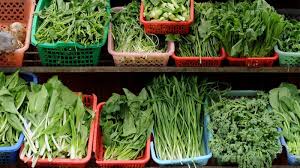Kenya’s earnings from fresh vegetable exports have dropped sharply from KSh 51 billion in 2023 to KSh 23.4 billion in 2024, representing a fall of over 50 percent. This major decline is linked to growing concerns about pesticide residue levels in the produce, especially from Kenya’s key export markets like the European Union. The situation has raised questions about the safety of farm chemicals and how they affect the country’s agricultural trade.
Data from the Kenya National Bureau of Statistics (KNBS) shows that in 2023, the country exported 164,000 tonnes of fresh vegetables. But in 2024, the volume reduced to 74,000 tonnes, which is almost the same level recorded in 2022 when the country exported 75,000 tonnes worth around KSh 23 billion. This repeated drop shows that Kenya has continued to struggle with meeting international standards, especially when it comes to food safety.
The main concern from international buyers has been the level of pesticide residue in Kenyan vegetables. In particular, the European Union (EU) has issued several alerts over the last one year about pesticide levels in Kenyan produce like beans and peas in pods, which exceeded the set Maximum Residue Limits (MRLs). These alerts have made importers more cautious and have affected the volume of exports allowed into European markets.
Food experts have warned that eating food with too much pesticide residue regularly can cause serious health problems. Some of these chemicals have been linked to long-term health issues. Reports also show that about 77 percent of farmers in Kenya rely on chemical pesticides to protect their crops from pests and diseases. Because of this high dependence, it has become important for farmers to follow the right safety procedures when using these chemicals.
To help control the issue, the Kenya Plant Health Inspectorate Service (KEPHIS) is now in charge of monitoring and testing farm produce for pesticide residue. KEPHIS was appointed in March 2019 as the official public analyst by the Ministry of Health. Their job includes checking the levels of pesticides in vegetables and fruits, making sure they meet both local and international safety rules, and issuing certificates for exports.
Vegetables are part of Kenya’s fresh horticultural exports, which also include cut flowers and fruits. In 2024, the entire horticultural sector saw a drop in performance. Export volumes fell by 14.1 percent, from 468,400 tonnes in 2023 to 402,200 tonnes in 2024. Export earnings also declined by 12.8 percent, from KSh 156.7 billion in 2023 to KSh 136.6 billion in 2024.
Another factor that affected exports was the limited cargo handling capacity at Jomo Kenyatta International Airport (JKIA) in Nairobi. Because of the restrictions, there was stiff competition for air cargo space, especially for fruit exporters. This increased air freight charges and added more pressure on exporters, who were already dealing with pesticide issues.
In the same period, cut flower exports experienced a small drop in earnings, moving from KSh 73.5 billion in 2023 to KSh 72.1 billion in 2024. This fall was mainly due to stricter enforcement of EU rules on False Codling Moth (FCM), a pest that affects flowers and fruits. Higher interception rates and rejected shipments contributed to the decline in flower earnings.
On the other hand, fruit exports brought some relief to the sector. The value of fruit exports increased by 26.5 percent, rising from KSh 32.4 billion in 2023 to KSh 41 billion in 2024. This growth was linked to improved compliance with international standards, better market access, and possibly more space for fruit cargo at JKIA, since vegetables and flowers were moving less.
This drop in vegetable export earnings is a big signal to all players in the agricultural value chain. Experts say that the government and stakeholders must improve how they monitor the use of pesticides and strengthen support services for farmers. Many are also calling for increased training in Integrated Pest Management (IPM), which is a safer and more sustainable way to control pests without overusing chemicals.
For Kenya to keep its position as a leading exporter of fresh horticultural products, it must meet the quality and safety standards required in key markets like the European Union. Without solving the current issues, especially around food safety, the country risks losing more business in the competitive international market.
